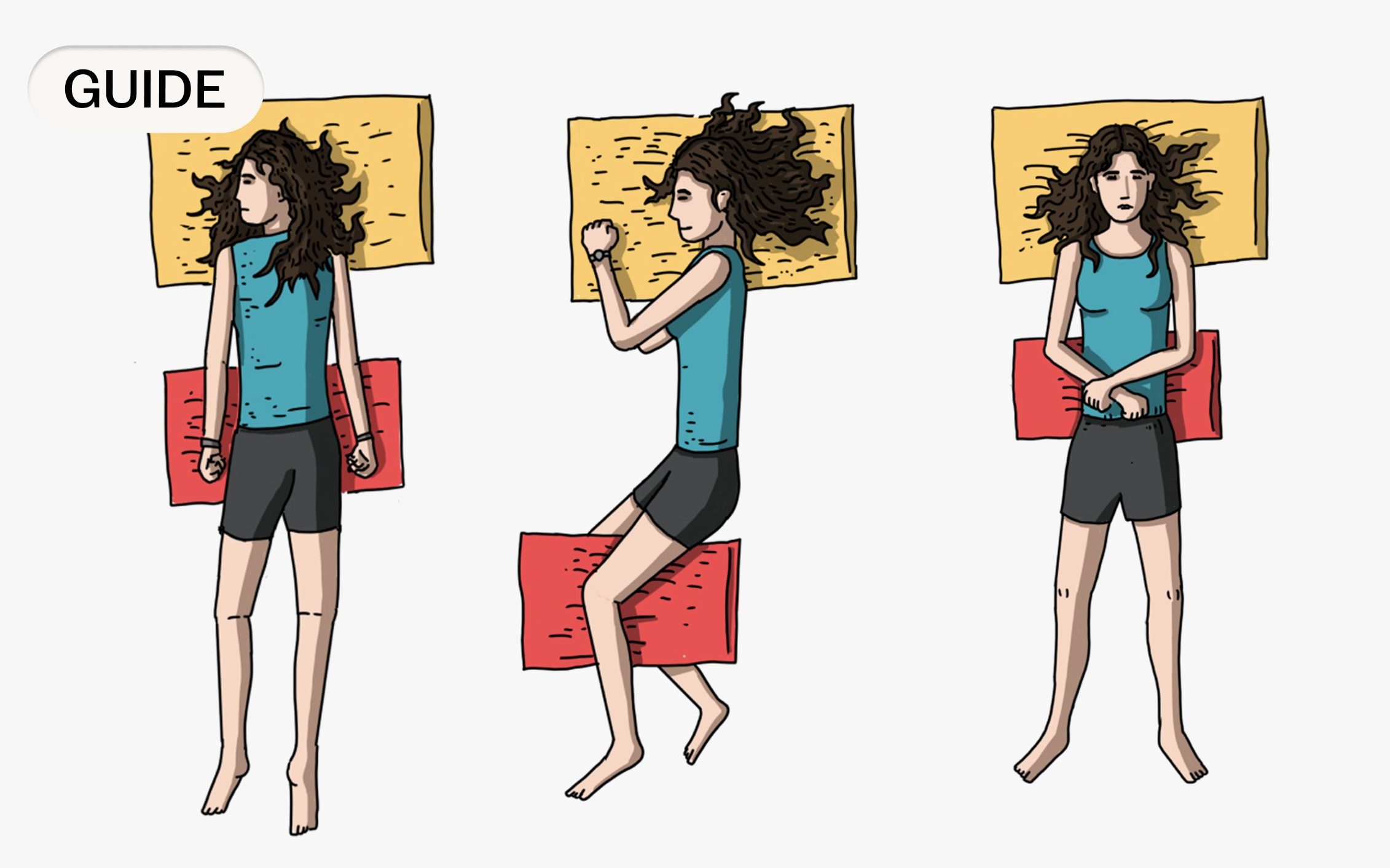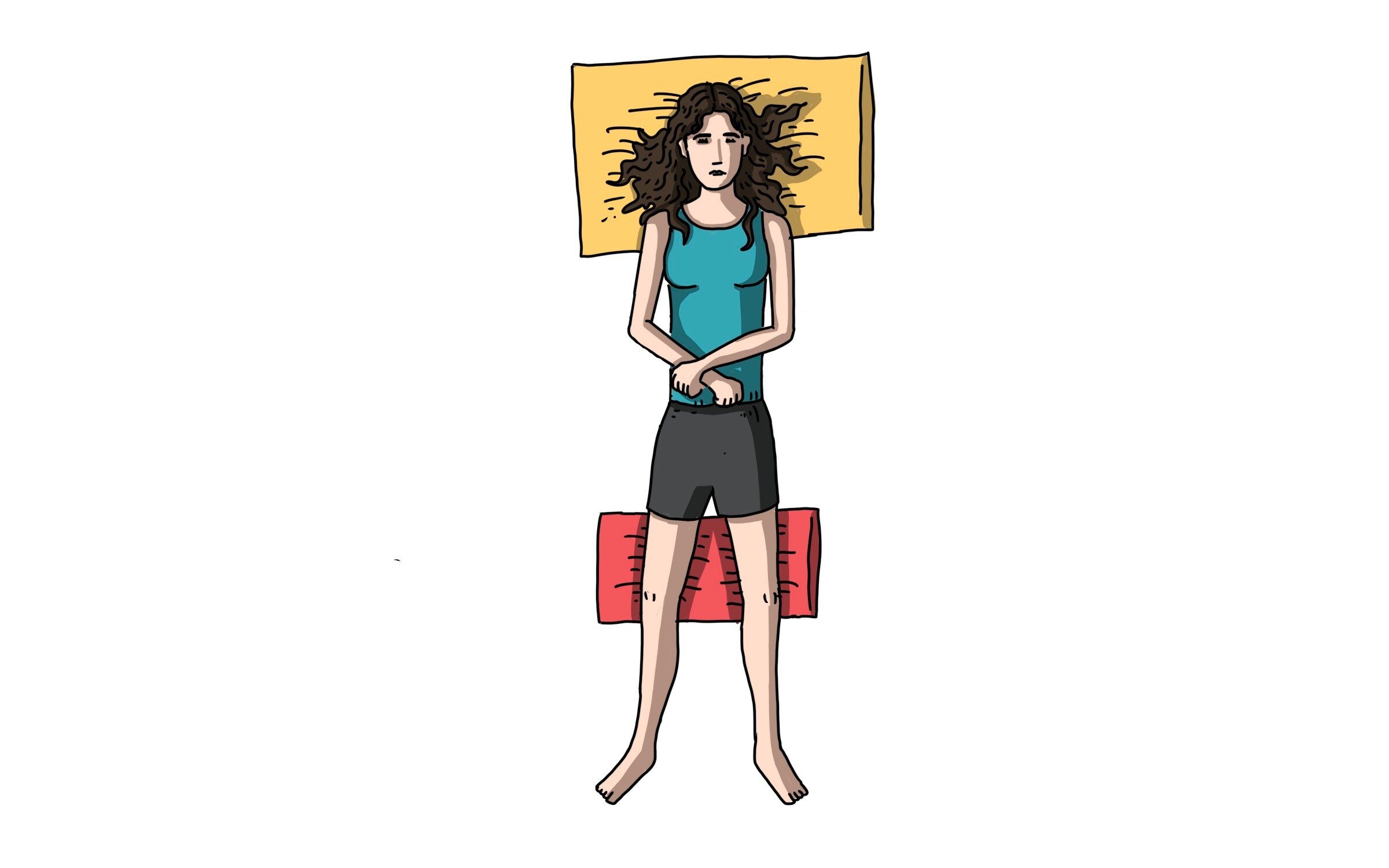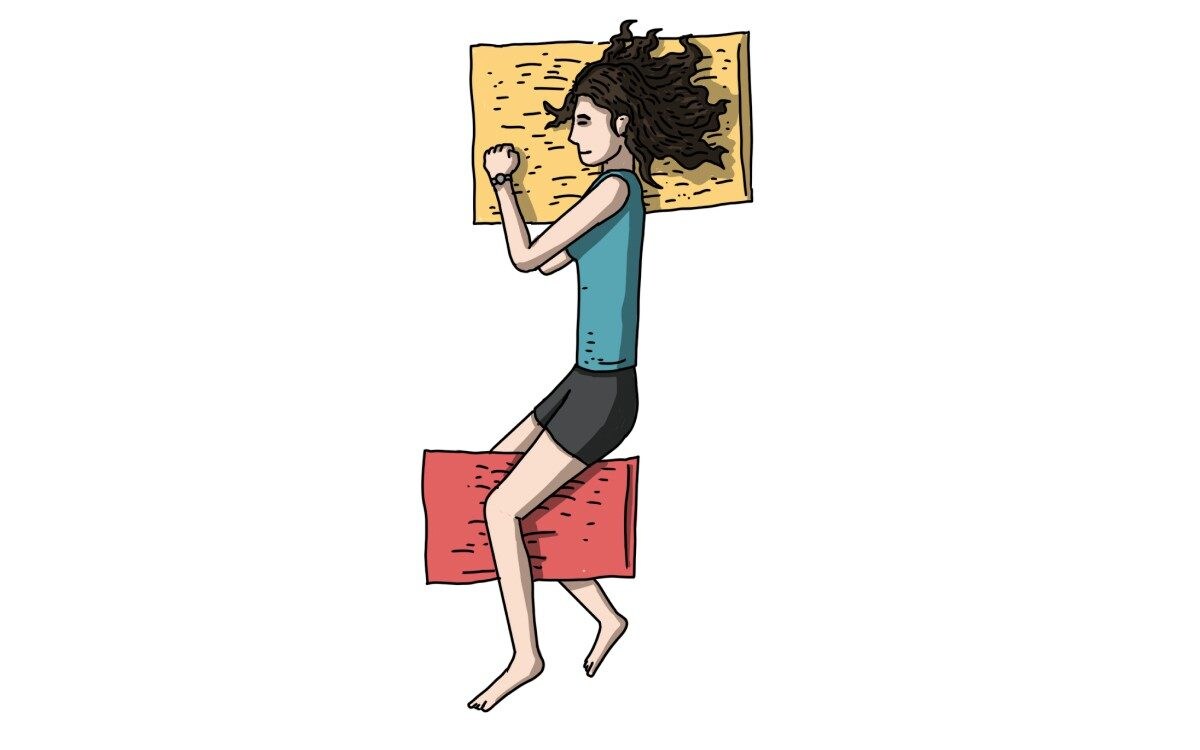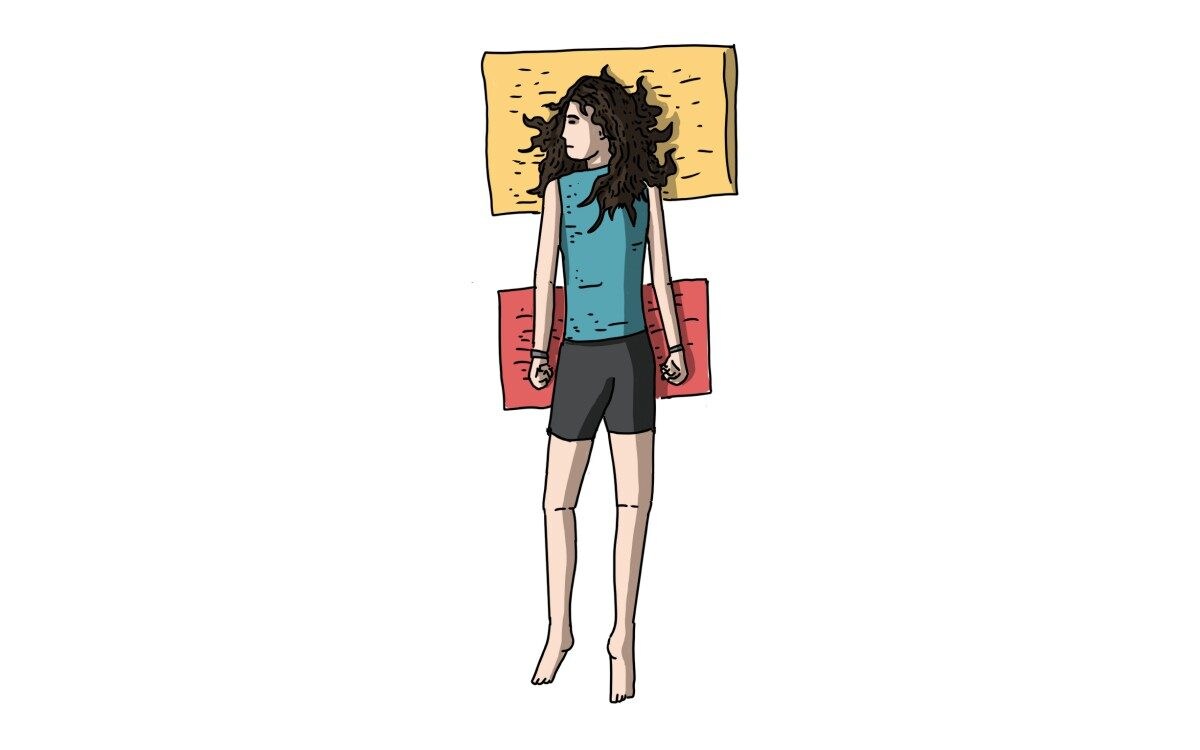
Lower back pain is ubiquitous, affecting two in three people at some point in their lives and is one of the most common reasons people visit their GP.
The causes are complex and varied, but how back pain impacts sleep can be a key factor in managing the condition.
and they have to take regular painkillers, and limit what they do, then it can have a very major impact on their quality of life,” says Dr Hanny Anwar, a consultant orthopaedic and spinal surgeon at The Wellington Hospital in north-west London. “A survey in the United States showed that chronic back pain can impact people’s quality of life as much as conditions like heart disease or major respiratory disease.”
Muscular lower back pain usually clears up relatively quickly, but if back pain lasts longer than a few weeks it can become chronic.
Getting on top of sleep can also make a big difference in recovering from lower back pain and managing the condition. Read on to learn what the experts advise.
Jump to:
- How are sleep and lower back pain connected?
- What causes back pain?
- What are the different types of lower back pain?
- When to see a specialist about lower back pain
- The impact of sleeping positions on lower back pain
- Sleeping positions for lower back pain
- Other tips for sleeping with lower back pain
How are sleep and lower back pain connected?
This relationship can be a vicious circle. Research shows that a bad night’s sleep can affect our ability to manage back pain, and similarly, back pain will often mean a restless and disturbed night.
“When people have back pain there are feelings of concern and worry about many factors – maybe they can’t exercise, or work, and then when someone doesn’t sleep that well that can elevate their pain levels because they’re a bit more tired,” says Mehmet Gem, a specialist musculoskeletal physiotherapist.
But a lot depends on what is causing the back pain.
If it’s the most common cause, muscular back pain, then sometimes, lying down correctly with the proper support for the back and the right bedding can bring some relief. Sometimes, however, this kind of pain can get worse as the night goes on and then disturb people’s sleep.
“In that case, you would look at multiple treatments including muscular conditioning, sleep hygiene, sleeping positions and bedding to make sure what they’re doing is right for them,” says Dr Anwar.
If you have lower back pain that only occurs at night, that can indicate that your back pain may be caused by inflammatory diseases of the spine and joints known as spondyloarthritis.
Back to index
What causes back pain?
“There are many different variables that can cause back pain from social or psychological factors, physical conditions, emotional wellbeing, work stresses and more,” says Gem.
Recommended
Seven ways to get rid of back pain
Read more
as it supports most of your body’s weight.
“The model of pain we work with is biopsychosocial, meaning that there are biological aspects which cause the pain, but also psychological aspects. So treating pain might be different for someone with major social stress or mental health issues for example,” says Dr Anwar.
Back to index
What are the different types of lower back pain?
Types of lower back pain include:
- Muscular
- Fracture
- Disc problems
- Arthritis
- Pathologies
Muscular
This is the most common cause of lower back pain. It is likely to be due to injuring the back muscles, tendons or ligaments by lifting something heavy, bending over, twisting or exercising. It might go away on its own with painkillers, or with help from a physio or an osteopath.
Fracture
Breaks in the back can happen during a fall or a car crash.
Disc problems
Discs can wear out with age, press on a nerve or tear.
Arthritis
This can include osteoarthritis and inflammatory diseases like ankylosing spondylitis which causes inflammation of the spine. “Typically with ankylosing spondylitis you won’t have much pain in the day, but then you’ll wake up at night with significant lower back pain, and you can’t get back to sleep. Then the back will loosen up in the day,” says Dr Anwar.
Pathologies
Cancer, infection and benign tumours can also cause back pain. “You may not have pain during the day, but if pain wakes you up in the night and is increasingly severe as the weeks go on, then that’s not a pain to ignore,” says Dr Anwar.
Back to index
When to see a specialist about lower back pain
According to Dr Anwar, you should see a specialist if you have any of these symptoms alongside lower back pain:
- If you have numbness in one or both legs
- If you have trouble with bladder or bowel control
- If the pain is in the upper back near your rib cage
- After an injury or accident
- If your pain lasts for longer than a week or so
- Sudden pain that wakes you up in the middle of the night and grows more severe
Back to index
The impact of sleeping positions on lower back pain
Experts caution that there are no hard and fast rules to sleeping with lower back pain as everyone is different.
“If patients have severe pain, finding comfortable positions to sleep in can be a challenge and it will vary,” says Gem. “You can have two or three people with the same kind of pain, but what works for each of them may be different.
“Some may ditch pillows, others may prop themselves up in bed. The other difficulty is that no one stays still when they sleep, they may start with the best intentions, then minutes later all their pillows are on the floor.”
Back to index
Sleeping positions for lower back pain
. The key to a comfortable night is keeping your back aligned and supported.
Sleeping on your back

Sleeping on your back can ease lower back pain. “Place a pillow under the knees to help loosen the psoas muscles which run from your back to the hips, as it can help to relax the back,” says Dr Anwar.
Sleeping on your side

If you’re a side sleeper, put a pillow between the legs while you’re sleeping which balances the pelvis and keeps the lower part of the spine a bit straighter. Your legs should be roughly 45 degrees at the hips and knees. Straight legs can pull on the muscles going into your back.
Sleeping on your stomach

Although sleeping on your stomach is not generally advised, a pillow under your hips can ease pressure on your back.
Back to index
Other tips for sleeping with lower back pain
- Do your exercises and stretches right before going to bed. “Getting some mobility into your lower back can help people get to sleep,” says Gem.
- which is not too soft or too hard. “Your muscles need to relax when you sleep, and your bed should support your spine rather than being so soft the muscles sink in, or so firm that the muscles can’t relax. Generally speaking, memory foam or a memory foam layer can be a good choice,” says Dr Anwar. It’s a good idea to try a mattress before buying it.
- Try a hot water bottle on your lower back to ease swelling and pain.
- Be as active as possible during the day, that can help to ease pain later at night. Try to avoid long hours sitting at a computer without moving. “Patients can be anxious about exercising, and end up in this cycle of not knowing what to do. So we try to support them and encourage them to move,” says Gem.
- : watch your caffeine intake and limit your use of screens before bed.
Back to index
Recommended
The best mattress for back pain in 2024, recommended by an osteopath
Read more
Play The Telegraph’s brilliant range of Puzzles - and feel brighter every day. Train your brain and boost your mood with PlusWord, the Mini Crossword, the fearsome Killer Sudoku and even the classic Cryptic Crossword.


Post a Comment
0Comments